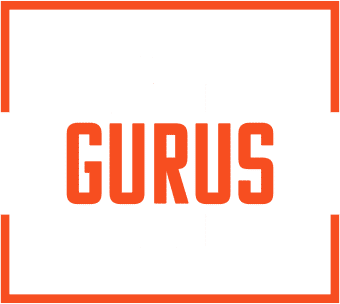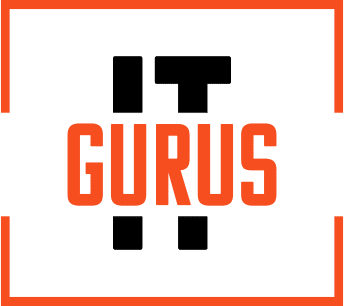The change in working environments from in-office to fully remote, or a hybrid of both worlds, has hit almost every industry in the U.S. – including the legal sector. The American Bar Association reported that 87% of lawyers surveyed said their workplace allows remote work, and 44% said they would leave their current job to work remotely.
It’s clear that remote and hybrid work environments in the legal sector are here to stay, and with that in mind, it’s an ideal time to look at the tools your team uses to work remotely, and prioritize confidentiality and data security among the collaboration tools in particular.
In the legal world, every detail matters, and the stakes are often high. Whether it’s preparing for a big case, drafting contracts, or offering client consultations, lawyers need to work together efficiently, regardless of physical location. This is where the power of modern tools and well-thought-out strategies come into play.
Challenges of Remote Work for Law Firms
Lawyers and admin staff in law firms have traditionally been reliant on face-to-face interactions and paper-based processes. With remote and hybrid working environments becoming more common, they face new challenges in the shift.
In the legal field, confidentiality is the law. Remote work can increase the risk of sensitive information falling into the wrong hands. Lawyers need to be extra cautious about data security when working outside the controlled environment of an office.
When you’re not in the same room, miscommunications can happen more frequently. Legal teams rely on nuanced discussions and collaborative decision-making. Remote work demands tools and strategies that can replicate the clarity and immediacy of in-person conversations.
Handling legal documents remotely is another hurdle. These documents are often sensitive and require secure, yet accessible, storage and sharing methods. The challenge is to maintain the integrity and confidentiality of these documents while ensuring they are readily available to all team members.
Maintaining client trust is vital. Clients need to feel confident that their legal matters are being handled with the same diligence and professionalism, whether the work happens in an office or remotely. This means legal professionals must not only adapt to remote work but also excel at it, ensuring client satisfaction.
Collaboration Tools for Remote Law Firms
A wide range of digital tools and solutions can address the challenges outlined in the last section, and open up new avenues for efficiency, security, and collaboration for distributed teams.
Secure, reliable video conferencing, messaging tools, and collaborative platforms are the new courtrooms and conference rooms for lawyers. They facilitate clear, real-time discussions, crucial for understanding case nuances and making joint decisions. Platforms with end-to-end encryption ensure that confidential conversations stay private.
The backbone of remote legal work is robust document management. Cloud-based solutions provide secure storage, sharing, and collaborative editing of legal documents. This technology allows lawyers to access case files from anywhere while maintaining the highest levels of data security and compliance.
These tools streamline the process of signing contracts and legal documents. They are not only convenient but also legally binding and secure, ensuring the authenticity of critical documents without the need for physical presence.
Accurate time tracking and billing are vital in the legal profession. Remote work calls for software that can precisely track time spent on various tasks and client cases, simplifying the billing process and ensuring transparency.
This software acts as a central hub for managing a law practice’s day-to-day operations. It encompasses client records, case management, scheduling, billing, and more, all in one place. This integration is crucial for remote teams to stay organized and efficient.
Legal work often involves complex projects with multiple stakeholders and deadlines. Legal project management software helps in organizing tasks, setting timelines, and tracking progress. It’s an essential tool for keeping remote legal teams aligned and on track with their case workloads.
Strategic Approaches to Remote Legal Teamwork
While having the right digital tools is crucial, the effectiveness of remote employees also hinges on the strategies they employ. These approaches ensure that technology is used to its fullest potential, fostering a culture of collaboration and efficiency.
Clear guidelines for communication are vital. This includes defining which platform to use for different types of communication (e.g., email for formal communications, instant messaging for quick queries), and establishing regular times for team check-ins. Such protocols prevent misunderstandings and ensure everyone stays on the same page.
Scheduled daily or weekly meetings can replicate the rhythm of an in-office environment. These sessions provide opportunities for team members to update each other on their progress, discuss challenges, and brainstorm solutions, maintaining a sense of community and collaboration.
Implementing and adhering to a strong cybersecurity framework and practices is non-negotiable in the legal field. This involves using secure networks, enabling multi-factor authentication, and educating team members about best practices in data security to protect sensitive client information.
Fostering a positive remote work culture is essential. Encourage openness, celebrate achievements, and ensure everyone feels part of the team. This can include virtual coffee breaks or informal catch-up sessions, which help in maintaining team morale and a sense of belonging.
Effective project management is about delegating tasks clearly and monitoring progress without micromanaging. Use project management software to assign tasks, set deadlines, and track progress, ensuring accountability and timely completion of work.
Regular feedback sessions help in identifying areas for improvement and celebrating successes. Encouraging team members to provide input on remote work processes can lead to valuable insights and innovative solutions.
Thrive in the Remote Working World with ITGurus: Specialists in IT for Law Firms
The key to success lies in finding the right balance between leveraging technology and nurturing a supportive team culture. However, finding and implementing the right collaboration tools for remote work is a long and complex journey in itself.
Fortunately, ITGurus is ready to guide you through this transition with expert tips, modern tools, and industry knowledge. We’re specialized providers of IT for law firms, offering tailored solutions and access to the resources you need to ensure seamless and secure collaboration.
Reach out to us today, and take the first step towards making your remote law firm’s environment more dynamic, secure, and efficient.


